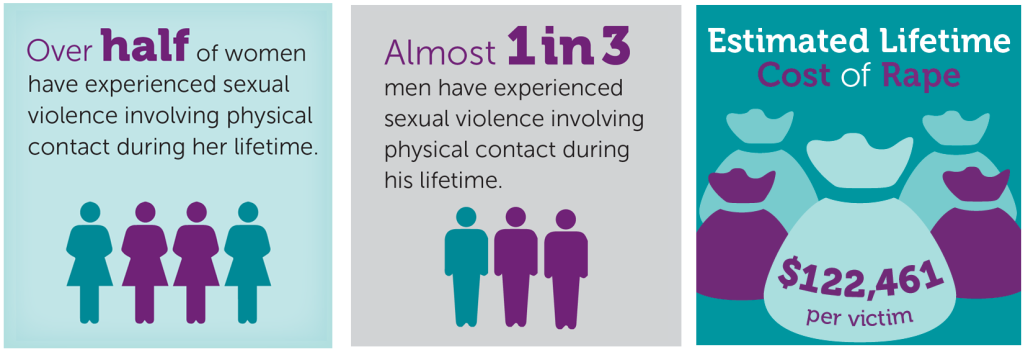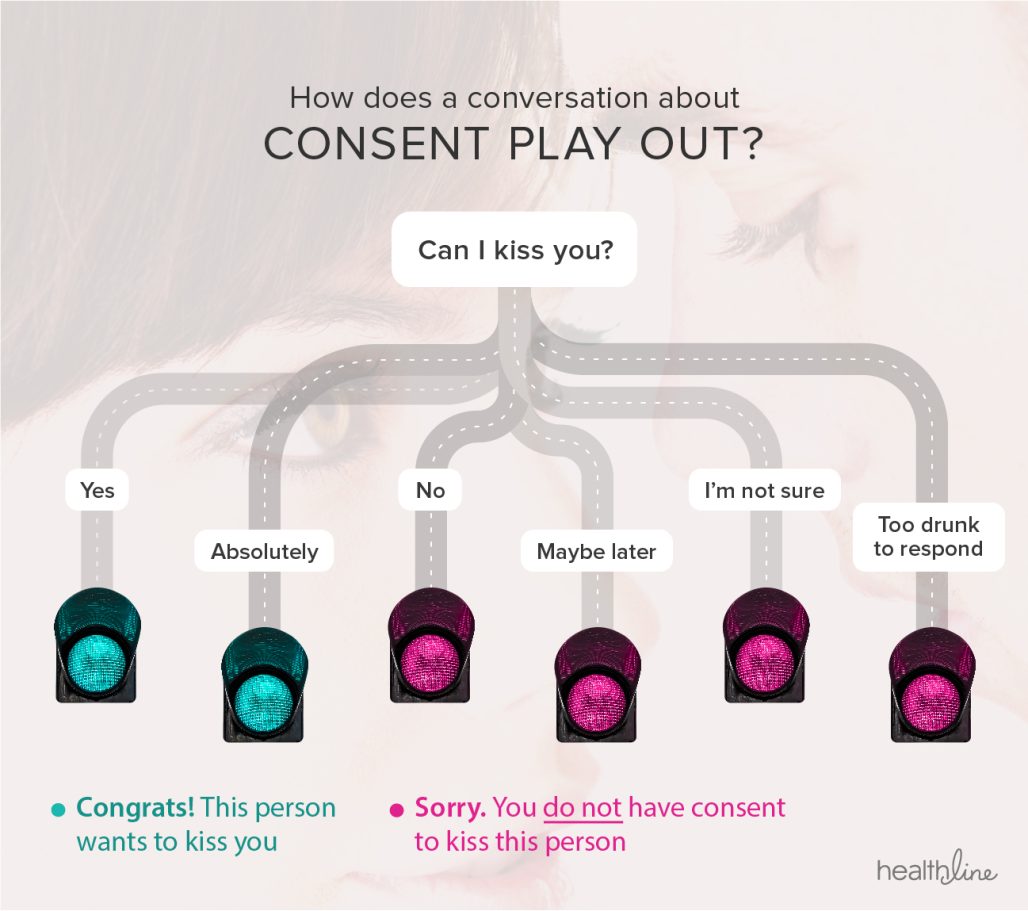Understanding Consent and Preventing Sexual Assault
The topic of consent has been at the forefront of discussions surrounding sexual assault and harassment in recent years. It’s an important issue that needs to be addressed to create a safer and more respectful society. Consent is a term that is often misunderstood, and it’s essential to have a clear understanding of what it means and how it can empower individuals and prevent sexual assault.
In this post, we’ll explore what consent is, why it’s important, and how to communicate and recognize it. We will also discuss the different types of sexual assault and how understanding consent can help prevent them. At the end of this post, you will have a better understanding of consent and how to apply it in your everyday life.
Understanding Consent
Consent is a fundamental concept that empowers individuals, ensures personal boundaries are respected, and plays a crucial role in preventing sexual assault. Understanding consent is not only essential for creating a safe and respectful environment but also for fostering healthy relationships, both personal and professional.
Consent, at its core, is about freely and willingly giving permission for any sexual activity. It goes beyond a mere verbal agreement; it requires clear communication, mutual understanding, and the absence of coercion or manipulation. Consent is an ongoing process that can be given, withdrawn, or modified at any time, and it must always be informed and enthusiastic.
By understanding and respecting the principles of consent, we can create a culture where individuals feel empowered to assert their boundaries and make informed choices about their own bodies and experiences. Consent should never be assumed or taken for granted; it must be actively sought and obtained.
Defining Consent
Defining consent is crucial when it comes to understanding and addressing the complex issue of sexual assault. Consent, at its core, is a voluntary agreement between all parties involved in a sexual encounter. It is a clear and enthusiastic “yes” that is freely given and can be withdrawn at any point.
Consent is not silence or the absence of a “no.” It is not coerced or manipulated. It is not assumed or implied by previous actions or relationships. Consent is an ongoing process of communication and mutual understanding.
Common misconceptions about consent.
Many people mistakenly believe that clothing choices, flirtatious behavior, or even previous sexual activity imply consent. However, it is crucial to understand that consent is never implied or assumed – it must be explicitly and verbally communicated.
Consent must be given by individuals who are capable of making informed decisions. This means that someone who is intoxicated, under the influence of drugs, or unconscious cannot give consent. It is the responsibility of all parties involved to ensure that everyone is capable of giving consent and that it is freely given.
Understanding and respecting the boundaries of consent is a vital step in preventing sexual assault. By educating ourselves and promoting a culture of consent, we empower individuals to make informed choices about their bodies and promote healthier and safer relationships.
What is Considered Consent in a Sexual Assault Case?
Sexual assault is a serious crime in Texas, and the penalties for a conviction can range from several years in prison to life behind bars. As such, it is important to stay informed about what legally constitutes consent in order to avoid the risk of being accused or charged with sexual assault. Understanding the complex issues surrounding consent will also provide better defense strategies if you are facing sexual assault accusations.

What Is Legally Considered Consent?
According to Texas law, consent is an agreement between two individuals to engage in sexual activity. However, verbal agreement alone does not constitute legal consent. If someone has given their “no,” then they have withdrawn that consent. Kissing or flirting does not automatically imply consent, nor does a person’s level of intoxication or use of drugs or alcohol. Additionally, pressuring someone into having sex can also be considered a breach of consent in most cases.
Consent at One Time Does Not Constitute Consent at All Times
It’s important to note that consenting to something on one occasion does not mean that the same individual consents on subsequent occasions. Consent can be withdrawn at any moment during the course of sexual activity at any time. Therefore, if a person has said no once before, then their decision has been made clear and should be respected.
Consequences of Having Sex With Minors
Under Texas law, anyone under the age of 17 cannot legally give consent for sexual conduct. This applies equally regardless of gender, sexuality, or any other affinities. If someone has sex with someone under 17 but who is not more than three years younger than them, they may still be faced with severe penalties for Sexual Assault of a Child. For cases where a person has sex with someone who is younger than 14, this could land them with Aggravated Sexual Assault of a Child charges, which is a first-degree felony punishable by 5 to 99 years in prison.
False Allegations of Sexual Assault
In recent years, sexual assault has become a major topic of discussion. Though the #MeToo movement has brought attention to this issue, it also created an unfortunate fear of false allegations of rape and sexual assault. However, according to the National Sexual Violence Resource Center, cases of false reporting are incredibly rare.
The study found that 4.5% of cases were false reports. These results are consistent with other well-constructed international studies. As with any crime, false reporting of sexual assault does occur; however, it is very rare. – brown.edu
Though rare, they do sometimes occur, usually falling into one of two categories: false memories of an assault or intentionally false accusations. Let’s look at each more closely.
False Memories of Rape and Sexual Assault
At times, a person may truly believe that they were a victim of sexual assault as the result of a “false memory”. The human brain is complex and still largely mysterious, which means that memories aren’t always accurate reflections of what actually occurred. This can lead to a person having a false memory of an event such as a rape or sexual assault.
False allegation cases stemming from false memories are most common among children, who are more vulnerable to manipulation and thus more likely to have been fed false stories and memories.
Intentionally False Reports of Rape and Sexual Assault
In most instances, false reports of rape or sexual assault are made with ulterior motives. These can include revenge, material gain, creating an alibi, expressing regret or anger, or simply drawing attention or generating sympathy. Of course, this kind of intentional misstatement can have serious implications for those falsely accused: facing both criminal prosecution and the possibility of being sued in civil court.
Protecting Your Rights in a False Accusation Lawsuit
If you ever find yourself on the receiving end of a false accusation of rape or sexual assault, it’s important to know your legal rights. Making a false accusation is illegal and punishable by law in Texas– and though it’s rare, those falsely accused have the right to pursue monetary damages through a false accusation lawsuit. To ensure your case is successful, it’s essential to enlist the help of a knowledgeable and experienced attorney who can represent you in court.
Role of consent in preventing sexual assault
Understanding the role of consent is paramount in preventing sexual assault. Consent is an essential aspect of any healthy and respectful relationship, whether it is a personal or professional one. It involves obtaining clear and voluntary agreement from all parties involved in any sexual activity.

Consent goes beyond simply saying “yes” or “no.” It is an ongoing process that requires active communication and mutual understanding between partners. It should never be assumed or implied and must be freely given without any form of coercion. Consent is not just the absence of a “no”; it is an enthusiastic and affirmative “yes.”
Educating individuals about consent is crucial in creating a culture of respect and preventing sexual assault. It is important to recognize that consent cannot be given by someone who is incapable of providing it, such as individuals who are intoxicated, asleep, or under the influence of drugs. Establishing clear boundaries and actively seeking consent ensures that all parties are comfortable and empowered in their relationships.
Consent should be sought and given each time a sexual encounter occurs, regardless of previous sexual history or relationship status. It is not a one-time agreement but an ongoing dialogue that can be revoked at any point. It is essential to respect and honor the boundaries set by each individual.
Consent education
Consent education plays a crucial role in empowering individuals and preventing sexual assault. It is a topic that should be addressed early on and integrated into various aspects of education and society.
Starting consent education at a young age is essential, as it helps establish a foundation for healthy relationships and boundaries. It should be introduced in schools, where students can learn about consent, communication, and respect. By teaching children about consent from an early age, we can help them develop a deep understanding of personal autonomy and respect for others.
Furthermore, consent education should not be limited to schools alone. It should also be incorporated into community programs, youth organizations, and even within families. By fostering open and honest conversations about consent, we can create a culture where individuals feel comfortable discussing boundaries, consent, and sexual assault prevention.
Consent education should cover various aspects, including understanding what consent means, the importance of enthusiastic and ongoing consent, recognizing and respecting verbal and non-verbal cues, and understanding the consequences of violating someone’s boundaries.
Moreover, consent education should address the societal factors that contribute to sexual assault, such as gender stereotypes, power imbalances, and the influence of media. By highlighting these factors, individuals can gain a deeper understanding of the broader issues surrounding consent and work toward dismantling harmful societal norms.
Media and Entertainment
In addition to formal education settings, the media and entertainment industry also have a role to play in promoting consent education. By portraying healthy and consensual relationships on screen and challenging harmful stereotypes, media can help shape public perceptions and attitudes towards consent.
How to ask for and give consent
Clear communication is the foundation of obtaining and giving consent in any situation. When it comes to intimate encounters, it is crucial to establish open and honest lines of communication to ensure that both parties are comfortable and enthusiastic about engaging in any form of sexual activity.
Asking for consent should be an ongoing process rather than a one-time question. It is important to create an environment where individuals feel safe and empowered to express their desires, boundaries, and limits. This can be done through active listening, respect for personal boundaries, and being attentive to verbal and non-verbal cues.

When initiating any sexual activity, it is essential to ask for explicit verbal consent. This could be as simple as asking, “Is it okay if I _______?” or “Do you want to _______?” This not only ensures that both individuals are on the same page but also allows for open dialogue and the opportunity to discuss any concerns or preferences.
Hesitation
Equally important is the ability to recognize and respect the response given. If someone says “no” or expresses hesitation, it is crucial to immediately stop and respect their boundaries. Consent is an ongoing process, and it can be withdrawn at any time. Being attentive to the other person’s comfort level and actively checking in throughout the encounter is essential.
It is equally important to understand that consent should never be assumed based on previous encounters or any form of relationship. Each situation is unique, and consent should be sought and given explicitly, regardless of past experiences.
Empowering individuals to express their boundaries and desires will not only help in preventing sexual assault but will also promote healthy and consensual relationships built on trust and mutual respect.
Recognizing and respecting boundaries
Non-verbal cues play a significant role in communication, especially when it comes to recognizing and respecting boundaries. It is essential to understand that not all forms of communication are verbal, and individuals may express their comfort levels or discomfort through their body language, gestures, or expressions. Being able to interpret these non-verbal cues is crucial in promoting consent and preventing sexual assault.
Non-verbal cues
When engaging with someone, it is important to pay attention to their non-verbal cues and respond accordingly. For instance, if someone appears tense, avoids eye contact, or steps back, it could indicate that they are feeling uncomfortable or unsafe. It is crucial to respect these signals and adjust your behavior accordingly, ensuring that you are not crossing any boundaries.
Moreover, it is essential to remember that non-verbal cues may vary from person to person. What may be comfortable for one individual may not be the same for another. Therefore, it is crucial to approach each interaction with sensitivity and empathy, allowing individuals to express their boundaries in a manner that feels safe and comfortable for them.
Recognizing and respecting non-verbal cues is not only important in intimate or romantic relationships but also in everyday interactions. By being aware of and responsive to these cues, we can create an environment that promotes open communication, consent, and mutual respect. Ultimately, understanding and honoring non-verbal cues empower individuals, fostering a culture that prevents sexual assault and promotes healthy relationships based on consent and respect.
Importance of sober consent
Consent is a fundamental aspect of any healthy and respectful relationship, and it becomes even more crucial when alcohol or drugs are involved. In the context of sexual encounters, it is essential to understand that intoxication impairs a person’s ability to give informed and voluntary consent.
Consent and alcohol/drugs
Alcohol and drugs can significantly impact judgment, decision-making, and the ability to communicate effectively. When someone is under the influence, their perception of situations and their own boundaries may be altered. This means that even if someone appears willing or participates in sexual activity while intoxicated, it does not necessarily imply consent.
It is vital to remember that consent must be enthusiastic, ongoing, and given willingly by all parties involved. Any form of coercion, manipulation, or taking advantage of someone’s altered state is completely unacceptable and can be considered sexual assault.
To ensure clear and sober consent, it is crucial to have open and honest communication with your partner. Discuss boundaries, desires, and intentions before engaging in any sexual activity. It is equally important to actively listen and respect the boundaries set by your partner, regardless of the influence of alcohol or drugs.
In situations where either party is intoxicated, it is advisable to wait until both individuals are sober before engaging in sexual activity. This allows for a more equal and consensual experience, where both parties can fully understand and willingly participate in the decision-making process.
Imbalances in relationships
Addressing power dynamics in relationships is a crucial aspect of understanding consent. Power imbalances can significantly impact an individual’s ability to freely give or withhold consent, leading to situations where consent may be coerced or invalidated. It is essential to acknowledge and dismantle these imbalances to create a culture of consent and promote healthy, respectful relationships.
Consent and power dynamics
Power dynamics can manifest in various ways, such as age differences, social status, wealth, or positions of authority. These imbalances can create an environment where one person feels compelled to comply with the other’s desires, even if they are uncomfortable or unwilling. This form of manipulation undermines the principle of consent, as it diminishes the autonomy and agency of the individual.
To address power dynamics, open and honest communication is key. It is crucial for both parties to engage in conversations about boundaries, desires, and expectations. It is important to create an environment where individuals feel safe expressing their needs and preferences without fear of judgment or repercussions.
Education plays a significant role in addressing power dynamics and their impact on consent. By raising awareness about these issues, individuals can learn to recognize and challenge power imbalances. This includes understanding the influence of societal norms, stereotypes, and gender roles in shaping power dynamics. By promoting conversations and educational initiatives, we can empower individuals to assert their boundaries, recognize signs of coercion, and actively work towards creating equitable relationships.
Consent in different contexts
Consent is a fundamental aspect of healthy relationships, regardless of their nature or duration. Understanding how consent operates in different contexts is crucial for fostering respectful and empowering interactions. Whether you are navigating the dating scene, engaging in casual hookups, or involved in a long-term relationship, consent remains a vital component of every interaction.
Consent should be sought and obtained at every stage.
Dating
From the initial approach to the first kiss or intimate encounter, open communication and active consent are essential. It is important to remember that consent is an ongoing process and can be withdrawn at any point. Both individuals must feel comfortable expressing their boundaries and actively respecting the boundaries of their partner.
Casual hookups
Casual hookups present a unique set of challenges when it comes to consent. In these situations, clear and explicit communication becomes even more critical. It is essential to have open and honest conversations about expectations, desires, and boundaries before engaging in any sexual activity. Consent should be enthusiastic and freely given by all parties involved. It is important to establish and respect the boundaries of both yourself and your partner, ensuring that everyone involved feels safe and empowered throughout the encounter.
Long-term relationships
Long-term relationships also require ongoing consent. While it may be tempting to assume that consent is implicit within the confines of a committed partnership, it is essential to maintain open lines of communication and regularly check in with each other. People’s boundaries and desires can change over time, and it is crucial to ensure that consent is consistently sought and granted.
Resources and support
If you or someone you know is in need of help or additional information regarding consent and preventing sexual assault, there are numerous resources available to provide support. It is crucial to remember that you are not alone, and there are organizations and professionals dedicated to assisting individuals in these situations.
Where to find help and additional information
One of the most widely recognized resources is the National Sexual Assault Hotline, which is operated by the Rape, Abuse & Incest National Network (RAINN). This hotline is available 24/7 and can provide immediate support, guidance, and information to survivors of sexual assault. They can also connect individuals with local resources such as counseling services, medical care, and legal assistance.
Additionally, many local communities have organizations and crisis centers that specialize in providing support to survivors of sexual assault. These organizations often offer counseling services, support groups, and educational programs to raise awareness and prevent future incidents. It is essential to reach out to these organizations for guidance and to connect with others who have experienced similar situations.
Online platforms and websites dedicated to consent and sexual assault prevention can also serve as valuable resources. These platforms provide information, articles, and educational materials to help individuals better understand consent, recognize warning signs, and promote healthy relationships. They may additionally offer helpful tips and strategies for navigating challenging situations and communicating boundaries effectively.
Finally, it is important to remember that seeking help and support is not a sign of weakness but a courageous step towards healing and empowerment. If you or someone you know is in immediate danger, do not hesitate to contact your local emergency services or law enforcement for assistance.
Remember, understanding consent and preventing sexual assault requires a collective effort. By utilizing the available resources and support systems, we can create a safer and more empowering society for everyone.
FAQs about Sexual Assault Accusations
What happens to someone who is falsely accused of sexual assault?
False allegations of sexual assault can have serious consequences, both personally and legally. An individual who has been wrongfully accused may face social stigma, loss of employment opportunities, and even criminal prosecution with harsh penalties if convicted. Therefore, it is essential for someone who is facing false accusations to seek legal counsel right away in order to protect their rights.
What are the 3 main defenses to a sexual assault accusation?
Those falsely accused of sexual assault have three primary options for defense: denial, consent, or alibi. Denial implies that the conduct was never committed by the accused, consent states that the accused gave permission for the act, and an alibi would prove that the accused wasn’t physically present at the time of the alleged incident. To successfully use any of these defenses, however, evidence must be provided to support it. Expert legal advice is typically necessary in order to properly construct a defense strategy.
How does an innocent person react when accused?
It’s natural for anyone who has been falsely accused of a crime to experience shock and confusion. The best course of action for someone in this situation is usually to remain calm, avoid speaking publicly about the case until consulting with an attorney, and either answer questions truthfully or politely refuse to provide information without counsel present. Any attempts to flee or intimidate witnesses could be interpreted as guilt or obstruction of justice, so it’s important to understand all potential consequences of any decisions made before facing false accusations.
What is good evidence in a sexual assault case?
When building a defense against false accusations of sexual assault, reliable evidence such as eyewitness testimonies, forensic science results, security camera footage, and expert medical opinions can play a vital role in exonerating the accused. Additionally, solid character references from respected members of the community can demonstrate the accused’s innocence.
What is the most important evidence in a sexual assault investigation?
In general, the most important pieces of evidence in a sexual assault investigation are physical evidence and witness accounts. Anything that could provide hard proof that the alleged incidents occurred (or did not occur) should be thoroughly evaluated by authorities – including the credibility of the accuser – in order to come to an accurate conclusion regarding whether or not a crime took place.
What is the most important type of evidence in sexual assault cases? Why?
Evidence obtained through direct contact between the victim and suspected perpetrator is typically the most important type of evidence in a sexual assault case. Examples include traces of bodily fluids left on clothing or bedding, photographs taken prior to and after the incident, electronic messages sent between parties involved, and statements made from both sides. These forms of evidence are often highly valuable because they provide tangible proof of what happened on the day in question and allow investigators and judges to make more informed decisions regarding guilt or innocence.
Can you get PTSD from being falsely accused?
Being falsely accused of a crime can be traumatic, regardless of the nature or severity of the charges. Some individuals may develop symptoms of Post-traumatic Stress Disorder (PTSD) due to the extreme stress caused by such events. Anxiety, depression, flashbacks, nightmares, isolation, guilt, confusion, and fear are some potential signs that a person may be suffering from false accusation-related PTSD. Anyone experiencing such symptoms should seek professional help as soon as possible in order to begin treatment.
How does it feel to be falsely accused?
Being falsely accused of a crime can be one of the most frightening experiences a person can have. There’s an immense feeling of powerlessness and frustration, coupled with a sense of betrayal and injustice that can leave individuals feeling vulnerable and exposed. It’s essential for those facing false accusations to remember that they are not alone in this fight and that there are resources available to help them through this difficult time.
Conclusion
Understanding consent is crucial in empowering individuals and preventing sexual assault. Consent is not just a mere formality; it is an ongoing process that requires open communication, mutual respect, and a clear understanding of boundaries. By educating ourselves and others about consent, we can create a culture that values and respects personal autonomy.
We hope you found our blog post on understanding consent to be informative and empowering. Consent is a crucial topic that requires ongoing conversation and education to prevent sexual assault and empower individuals in their relationships. By understanding the principles of consent and promoting open communication, we can create a safer and more respectful society. Remember, consent should always be enthusiastic, ongoing, and freely given. Together, let’s work towards a world where consent is valued and respected by all.




